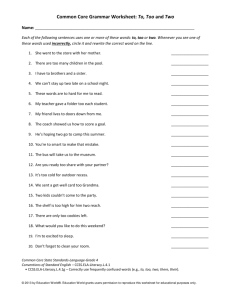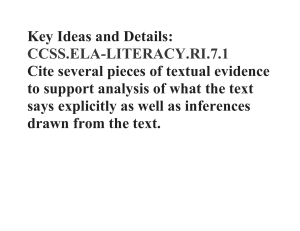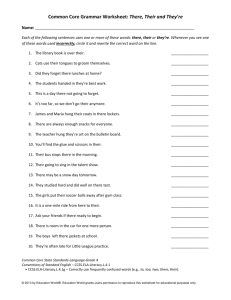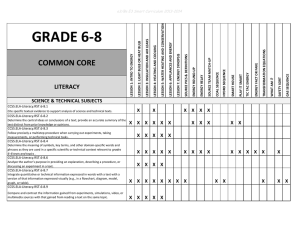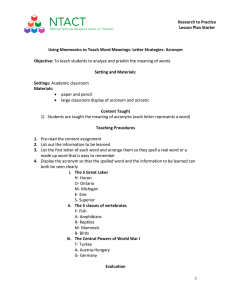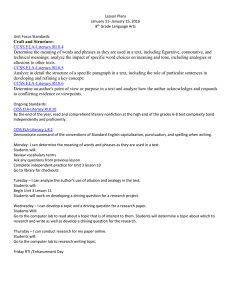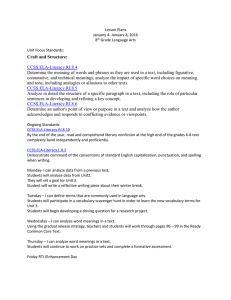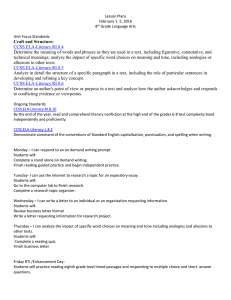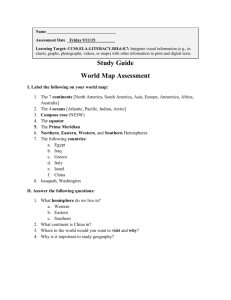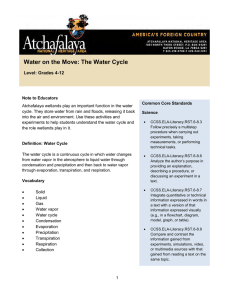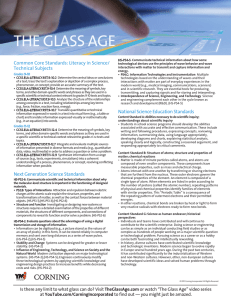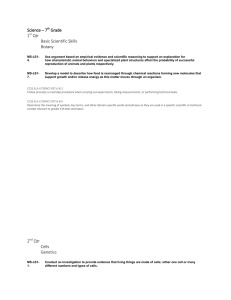Cellular Biology - Mountain Middle School
advertisement
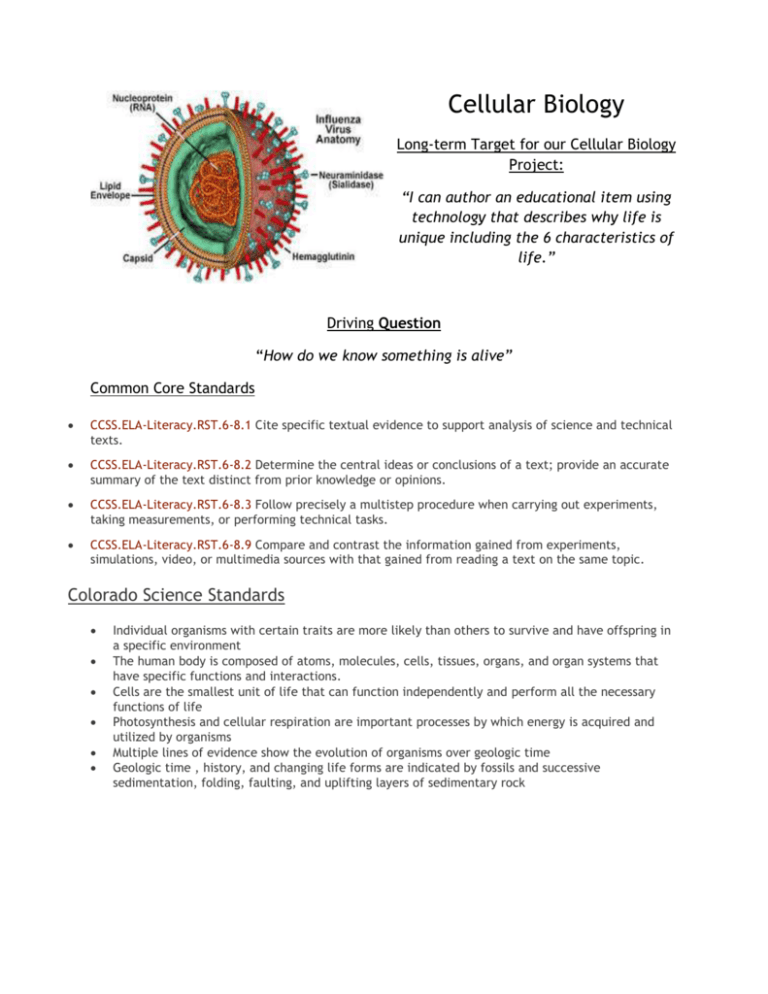
Cellular Biology Long-term Target for our Cellular Biology Project: “I can author an educational item using technology that describes why life is unique including the 6 characteristics of life.” Driving Question “How do we know something is alive” Common Core Standards CCSS.ELA-Literacy.RST.6-8.1 Cite specific textual evidence to support analysis of science and technical texts. CCSS.ELA-Literacy.RST.6-8.2 Determine the central ideas or conclusions of a text; provide an accurate summary of the text distinct from prior knowledge or opinions. CCSS.ELA-Literacy.RST.6-8.3 Follow precisely a multistep procedure when carrying out experiments, taking measurements, or performing technical tasks. CCSS.ELA-Literacy.RST.6-8.9 Compare and contrast the information gained from experiments, simulations, video, or multimedia sources with that gained from reading a text on the same topic. Colorado Science Standards Individual organisms with certain traits are more likely than others to survive and have offspring in a specific environment The human body is composed of atoms, molecules, cells, tissues, organs, and organ systems that have specific functions and interactions. Cells are the smallest unit of life that can function independently and perform all the necessary functions of life Photosynthesis and cellular respiration are important processes by which energy is acquired and utilized by organisms Multiple lines of evidence show the evolution of organisms over geologic time Geologic time , history, and changing life forms are indicated by fossils and successive sedimentation, folding, faulting, and uplifting layers of sedimentary rock
